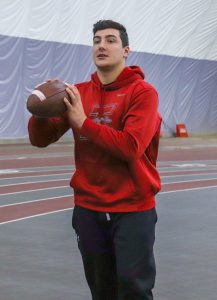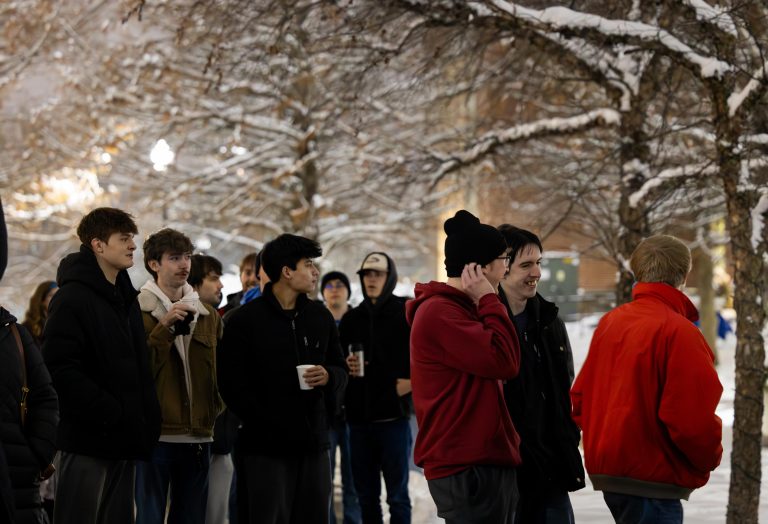Freshman football recruits undergo a variety of challenges in their first season, from becoming accustomed with the atmosphere of collegiate football to familiarizing themselves with the everyday activities of the University of Indianapolis’ athletics department. An additional challenge presented itself to freshman mechanical engineering major and running back Sam Schoonveld, however, when he received a diagnosis for a heart condition weeks before summer practices began.

All freshman recruits undergo an in-depth physical before they are allowed to practice or play as a member of UIndy’s athletic program, including football players, according to Former Head Football Coach Bob Bartolomeo. These include a number of tests, including an electrocardiography, or EKG, to check for abnormalities in heart rhythms.
After his physical, Schoonveld said that he thought nothing of the tests and went about life as usual, fully expecting to receive a normal report and be cleared to begin practice that summer. Two days after his physical, however, Schoonveld said he received a call from Head Athletic Trainer Ned Shannon notifying him of an abnormality on the EKG.
Schoonveld was then referred to Indiana University Health Methodist Hospital, where he underwent a stress test and was formally diagnosed with Long QT Syndrome, a heart rhythm disorder that can cause fast, chaotic heartbeats during times of stress or intense physical activity.
“There’s a certain rhythm of your heart and there’s certain intervals. There’s a space between a Q and T, and that’s basically the space between your heartbeats,” Schoonveld said. “And when you exercise and you elevate your heart rate, it’s supposed to get closer and closer together so you can get more heartbeats in a minute, but mine actually gets a little longer and more spaced out.”
The diagnosis was a shock, Schoonveld said, because he was a dedicated athlete throughout high school, often playing three to four different sports throughout the year, and had never experienced any symptoms
“It was really scary once I started reading about it and researching,” Schoonveld said. “You can have no symptoms of it and all of a sudden your heart can just stop and you can just fall over. So the fact that I didn’t have anything happen with it my whole life is a blessing.”
The first priority of the coaching staff after they found out about Schoonveld’s diagnosis, Bartolomeo said, was to wait and see whether it would be safe for Schoonveld to play football for UIndy. While the diagnosis concerned Bartolomeo, he said that his main concern was that Schoonveld receive a doctor’s clearance before stepping on the field to play, even if that meant delaying the recruit’s plans to start practice.
“I never want to take away a dream from a young man who wants to come and play and compete in collegiate athletics,” Bartolomeo said. “But I was more concerned about his health than anything else. I’m glad we caught it so that nothing would happen if he was going through physical activity.”
Bartolomeo and Schoonveld explained that while intense physical activity can be a risk factor for people with Long QT syndrome, Schoonveld practices alongside his teammates without any special treatment. His ability to practice normally without experiencing symptoms is thanks to a medication that Schoonveld uses to prevent his heartbeat from beating at an irregular level.
“They [doctors] put me on some medicine and they started working my dosage up for my medicine. Now I just take a pill every morning,” Schoonveld said. “I can’t really tell that I’m on the medicine, I can’t really tell that I have it. I’ve never been able to tell that I’ve had it.”
According to Bartolomeo, the situation could have been much worse had the condition gone undetected. The coach said that is gives him peace of mind to know that all of his players have been thoroughly examined and are healthy before they begin their careers with UIndy athletics.
“I think it [Schoonveld’s diagnosis] is an at testament to our screening process here at UIndy. It’s not the first time where we’ve caught problems that the player did not know about,” Bartolomeo said. “As a coach, you feel confident that those players that are cleared are ready to go and can compete and do the physical activities that we need to do.”







